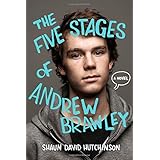Acampora, Paul. I Kill the Mockinbird. New York: Roaring Brook Press, 2014. Print.
image from: www.paulacampora.com
My Thoughts
This was a cute story. Three friends (Lucy, Michael, & Elena) decide they want everyone to read To Kill a Mockingbird for their required summer reading. They create a movement ("conspiracy") that makes people think the book is one others DON'T want kids to read. "Because wanting what you can't have is the American Way, right?" (Acampora 54). So, they begin hiding copies of To Kill a Mockingbird in local book stores and leaving a flyer stating "I Kill the Mockingbird" with a website address they created. The movement grows (and so does the readership).
The book is only 163 pages and is a fast read. It starts off that Lucy's mother has returned from the hospital. She's undergone cancer treatment. The way the author addresses this real life situation is appropriate and not fully of sentimentality. It also ties in to the Mockingbird conspiracy.
Lucy attends at Catholic school where her father is the principal. I found Acampora's descriptions of Catholic teaching humorous. "We both spend our days in Catholic school. That's where you learn that faithful people can be a little insane sometimes...We're taught that sometimes the world is a puzzle waiting for us to solve it. Other times it's a mystery to appreciate and accept" (Acampora 5).
In fact, there were several times I marked something that I found humorous in this book. For example, "Why do teachers think that shoving summer reading lists down our throats is a good idea?" (Acampora 7). This is timely as many posts on my library list serv right now are talking about summer reading lists.
Another thing that I laughed about was "Fat Bob's" funeral. There is an incident and the funeral director's reaction is simply "Sweet Jesus" (Acampora 12). I know that I found this probably funnier than it is because I just recently attended by uncle's funeral.
I appreciated that there is mention of why libraries weed books. I, however, will probably not use the same technique as the conspirators to rid the library of the discards (Acampora 140).
I have a great display idea to create in my own library to encourage kids to read this book as well as To Kill a Mockingbird. I can't wait until it's built.
Some insightful thoughts from this book:
- "It's not enough to know what all the words mean...A good reader starts to see what an entire book is trying to say. And then a good reader will have something to say in return. If you're reading well...you're having a conversation" (Acampora 10).
- "At our house, thank you cards are a big deal" (Acampora 28). YES! This makes me smile because I'm trying to teach my daughter the same.
- When events happen, "you don't know what will come of it. I don't believe that God has motives that we are supposed to understand or enjoy " (Acampora 29).
